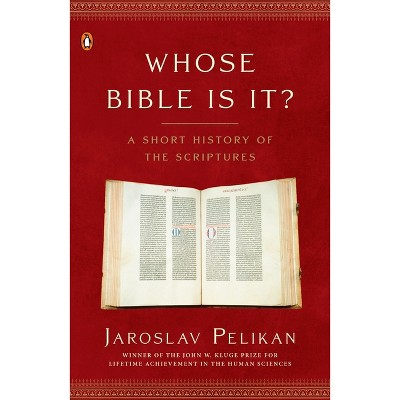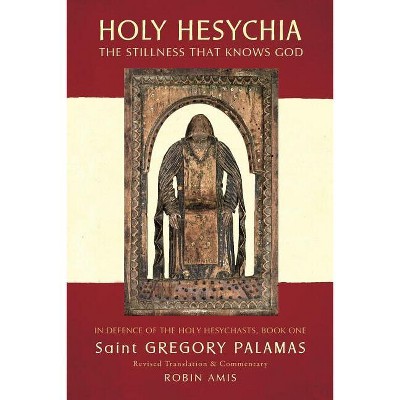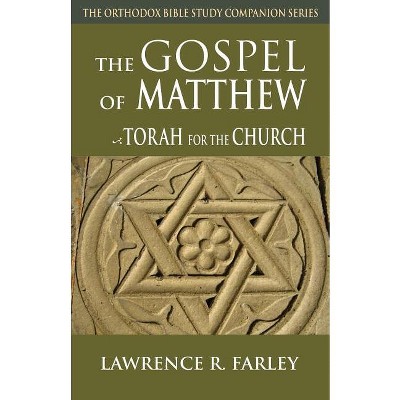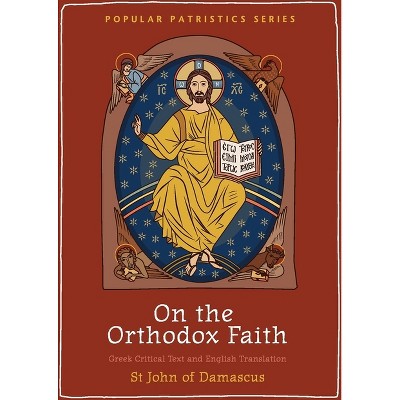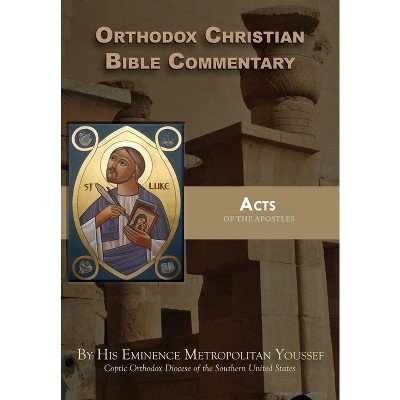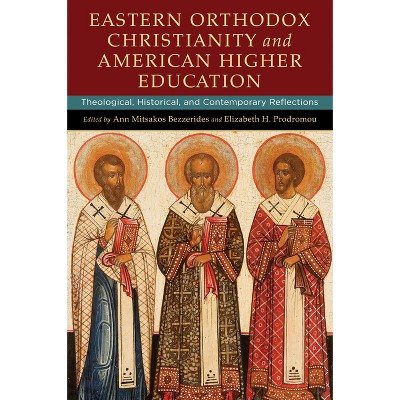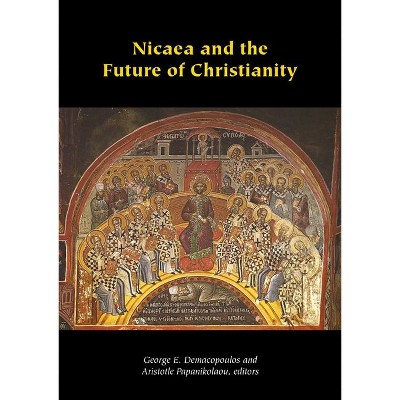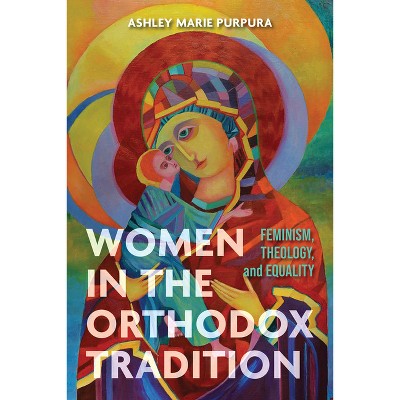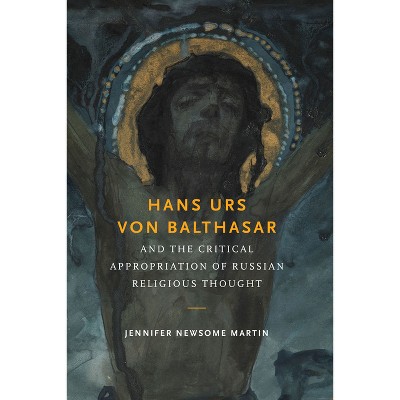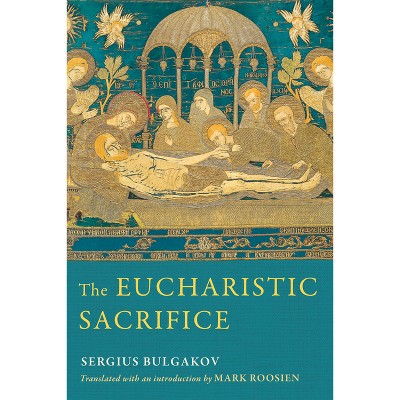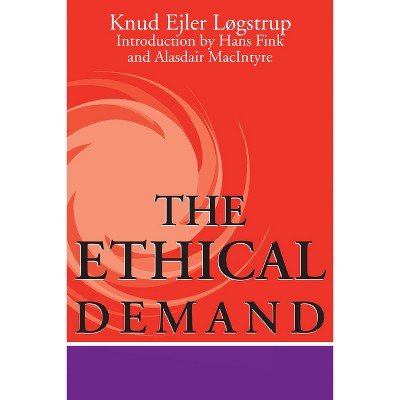Sponsored

Being with God - by Aristotle Papanikolaou (Paperback)
In Stock
Sponsored
About this item
Highlights
- The central task of Being With God is an analysis of the relation between apophaticism, trinitarian theology, and divine-human communion through a critical comparison of the trinitarian theologies of the Eastern Orthodox theologians Vladimir Lossky (1903-58) and John Zizioulas (1931- ), arguably two of the most influential Orthodox theologians of the past century.
- About the Author: Aristotle Papanikolaou is professor of theology and co-founding director of the Orthodox Christian Studies Center at Fordham University.
- 248 Pages
- Religion + Beliefs, Christianity
Description
About the Book
""Being With God" is an exceedingly important and well-written book on Orthodox theology of the Trinity. It not only explains the work of two major contemporary Orthodox theologians; it also lends vital insight into the nature and character of contemporary Orthodox theology in general." Vigen Guroian, Department of Theology, Loyola College in Maryland"This is a splendid work of hard-won insights into crucial figures in the development of contemporary theology. Aristotle Papanikolaou makes an original contribution that will be of great interest not only to students in the area of Eastern Orthodox theology but to anyone studying Christian anthropology, metaphysics, trinitarian thought, or comparative theological method." Mark McIntosh, Department of Theology, Loyola University of ChicagoThe central task of "Being With God" is an analysis of the relation between apophaticism, trinitarian theology, and divine-human communion through a critical comparison of the trinitarian theologies of the Eastern Orthodox theologians Vladimir Lossky (1903 58) and John Zizioulas (1931 ), arguably two of the most influential Orthodox theologians of the past century. Aristotle Papanikolaou shows how an ontology of divine-human communion is at the center of both Lossky's and Zizioulas's theological projects. He also shows how, for both theologians, this core belief is used as a self-identifying marker against "Western" theologies.Papanikolaou maintains, however, that Lossky and Zizioulas hold profoundly different views on how to conceptualize God as the Trinity. Their key difference is over the use of apophaticism in theology in general and especially the relation of apophaticism to the doctrine of the Trinity. For Lossky, apophaticism is the central precondition for a trinitarian theology; for Zizioulas, apophaticism has a much more restricted role in theological discourse, and the God experienced in the eucharist is not the God beyond being but the immanent life of the trinitarian God."Book Synopsis
The central task of Being With God is an analysis of the relation between apophaticism, trinitarian theology, and divine-human communion through a critical comparison of the trinitarian theologies of the Eastern Orthodox theologians Vladimir Lossky (1903-58) and John Zizioulas (1931- ), arguably two of the most influential Orthodox theologians of the past century. These two theologians identify as the heart and center of all theological discourse the realism of divine-human communion, which is often understood in terms of the familiar Orthodox concept of theosis, or divinization. The Incarnation, according to Lossky and Zizioulas, is the event of a real divine-human communion that is made accessible to all; God has become human so that all may participate fully in the divine life.
Aristotle Papanikolaou shows how an ontology of divine-human communion is at the center of both Lossky's and Zizioulas's theological projects. He also shows how, for both theologians, this core belief is used as a self-identifying marker against "Western" theologies.
Papanikolaou maintains, however, that Lossky and Zizioulas hold profoundly different views on how to conceptualize God as the Trinity. Their key difference is over the use of apophaticism in theology in general and especially the relation of apophaticism to the doctrine of the Trinity. For Lossky, apophaticism is the central precondition for a trinitarian theology; for Zizioulas, apophaticism has a much more restricted role in theological discourse, and the God experienced in the eucharist is not the God beyond being but the immanent life of the trinitarian God.
Papanikolaou provides readers with a richer understanding of contemporary Orthodox theology through his analysis of the consensus and debate between two leading Orthodox theologians.
Review Quotes
"How is divine-human encounter possible given that the triune God transcends human logic, thought, and speech-so that man can speak of him only in apophatic (negative) terms? How is this possible unless the triune God is immanent within creation and man can speak of him in cataphatic (positive) terms? . . . Papanikolaou's work is important because it critically compares two ontological answers to these questions by Vladimir Lossky (1903-1958) and John Zizioulas (1931-), two of the most influential Eastern Orthodox theologians of the twentieth century. As such, it provides a window into significant developments and debates in contemporary Orthodox thought." --Westminster Theological Journal
"In this book, Aristotle Papanikolaou compares the Trinitarian theologies of Vladimir Lossky and John Zizioulas, two of the foremost Orthodox minds of the twentieth century. He argues that while both men take the reality of divine-human communion as the starting point for their reflection about God, they wind up constructing dissimilar, even mutually incompatible, theologies." --Anglican Theological Review
"The book compares the Trinitarian theologies of Vladimir Lossky and John Zizioulas with a view to illustrating how each author conceives of the communion between God and humanity. Both authors affirm the reality of the divine-human communion, yet there are profound differences in the way Lossky and Zizioulas envisage and explain such communion." --Logos: A Journal of Eastern Christian Studies
"The result is a helpful comparative analysis that shows how common affirmations within the theological task can lead to very different outcomes: Lossky with his prominent apophaticism and Zizioulas with his Eucharistic ecclesiology. . . . Being with God shows that substantial diversity exists within contemporary Orthodox theology . . . Papanikolaou shows himself to be a careful reader of Lossky and Zizioulas." --International Journal of Systematic Theology
"This book is a tour de force of conversational theology. The author offers a beautiful exercise in a 'hermeneutics of charity, ' because, for him, critical engagement with the two theologians under discussion does not amount to deconstruction but to a fruitful and truthful encounter, which takes the 'struggle' of conversation seriously." --The Journal of Religion
"This carefully researched, cogently argued book undertakes a comparative exploration of two twentieth century orthodox theologians: Vladimir Lossky and John Zizioulas. While their emphases and conclusions differ, both authors endeavor to counteract the 'western' rationalism sneaking into contemporary orthodoxy by appealing to the doctrine of theosis. . . . By far the most beautifully written sections of Being with God are those concerned with Zizioulas's Eucharistic theology which, for Papanikolaou, counters with Losskian dangers of individualism, impersonalism, and substantialism." --Modern Theology
"This is an analysis of the relation between apophaticism, Trinitarian theology, and divine-human communion through a critical comparison of the Trinitarian theologies of Vladimir Lossky and John Zizioulas, arguably two of the most influential Orthodox theologians of the past century. Papanikolaou shows how an ontology of divine-human communion is at the center of both Lossky's and Zizioula's theological projects and how they use this core belief as a self-identifying marker against 'Western' theologies." --Theology Digest
About the Author
Aristotle Papanikolaou is professor of theology and co-founding director of the Orthodox Christian Studies Center at Fordham University. He is the author and co-editor of a number of books, including The Mystical as Political: Democracy and Non-Radical Orthodoxy (University of Notre Dame Press, 2012).






